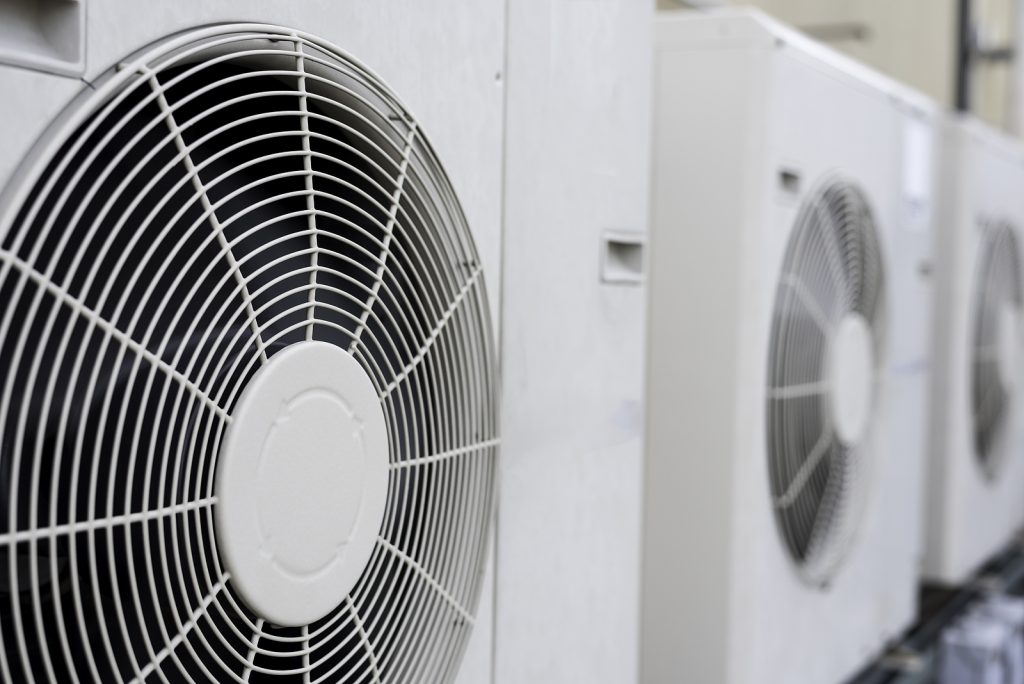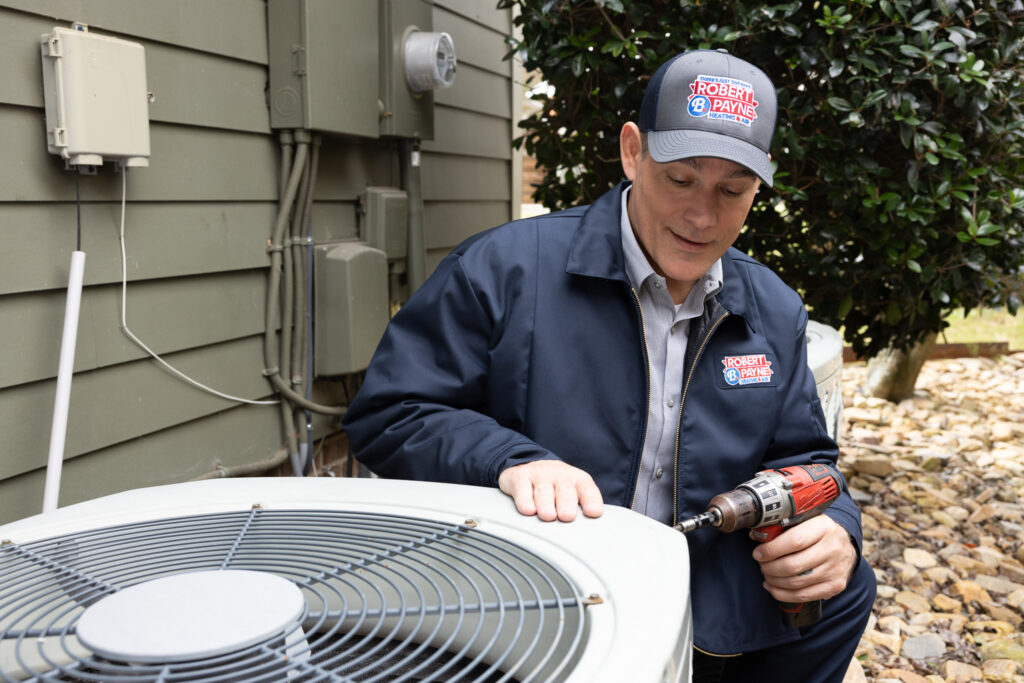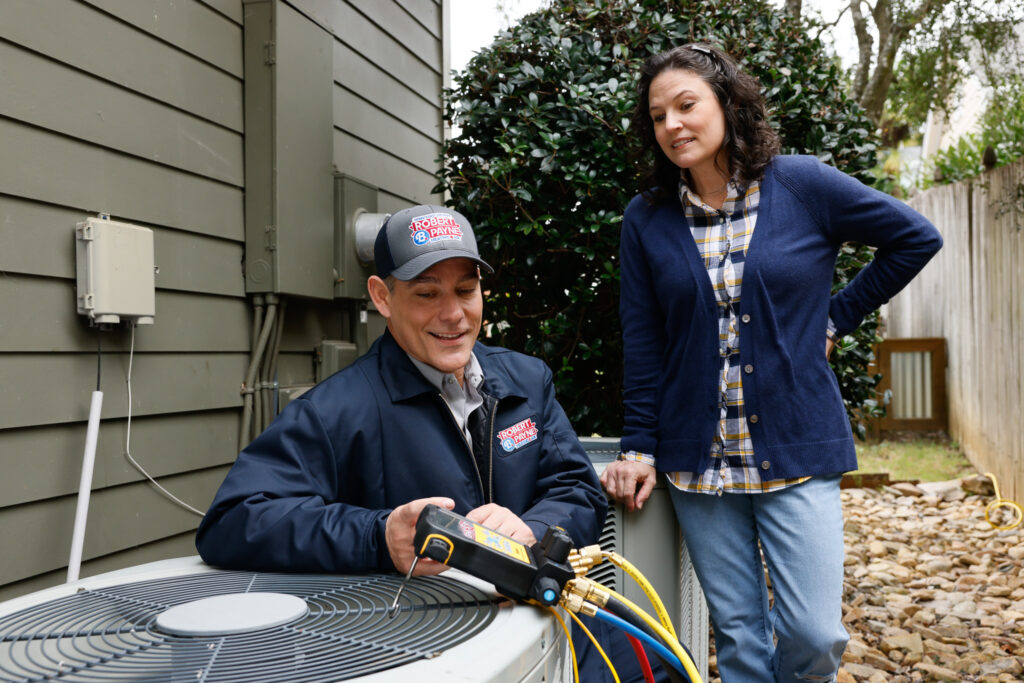Do you care what kind of planet you leave behind for the next generation? If you do, you’ll be aware that in many industries, changes are being made to reduce the impact of carbon emissions and energy use. The changes are led by regulations established by the U.S. Department of Energy (DOE). In the HVAC industry, the focus is on creating equipment that can regulate the temperature and air quality of your home more efficiently without compromising on effectiveness.

The standards implemented by DOE in 2015 for energy efficiency is known as seasonal energy efficiency ratio (SEER). It is a rating system that measures the amount of cooling your air conditioning unit produces for each unit of energy it uses. The higher the SEER rating, the less energy your HVAC unit consumes and the more money you will save in energy bills. In some states, the minimum SEER rating is 14.
However, in 2016, the DOE developed a new rule, the SEER2 protocols. The increase in SEER rating is expected to result in significant savings for homeowners and help reduce carbon emissions from HVAC systems. SEER2 is expected to replace SEER ratings in 2023.
What is SEER2?
SEER2 is not much different from SEER in principle. The main difference is that since SEER2 takes into account seasonal temperature differences in the country, the minimum ratings vary by region. For those living in the South, the minimum rating will move from 14 to 15. This will make sure that homeowners use more efficient HVAC systems that are tailored to their region.
How Does This Affect You?
The new SEER2 standards will come into full effect in 2023 and the new minimums are expected to increase energy efficiency and reduce your monthly bills. The increased efficiency of HVAC systems is also expected to help reduce carbon emissions, making sure that you care for the environment while keeping your house comfortable.
If you’re considering buying a new air conditioning unit, it’s best to look out for models with SEER2 ratings as the DOE is expected to make this a mandatory requirement in the near future. This will ensure that you’re making an investment that pays off in terms of energy efficiency and cost savings. It will also help make sure that your house stays cool and comfortable while also reducing its carbon footprint.
There will be about a 20 to 25% price increase for units with SEER2 ratings, but this will be more than compensated by the money saved from monthly energy bills. Understanding the SEER rating system and what it means for your HVAC unit can make a real difference in how much you pay to keep your house comfortable and efficient.
How Do You Find Your System’s SEER Rating?
On most new air conditioners you’ll find a yellow ENERGY Guide label with the SEER rating. The SEER rating can also be found near the top of the manufacturer’s label next to the model and serial number. The first two numbers indicate the SEER rating, for instance, a unit with the model number “14AC” has a SEER rating of 14. If you’re not sure what kind of air conditioner you have, you can always contact a local HVAC technician to help you understand its efficiency rating better.
Do You Need to Upgrade Your HVAC System to SEER2 Standards?
Systems that do not meet the 2023 SEER2 requirements will be phased out. This implies that parts and components for such systems won’t be produced anymore, and repairing them could become challenging. As time passes, repair and maintenance for these systems may also become more costly. If your unit is approaching the end of its lifespan, it’s advisable to plan for a replacement now to avoid incurring expensive repair and maintenance costs later.
How Should You Prepare For SEER2 Changes?
If your home’s HVAC system is old, having issues, or struggling to keep up with your needs, it’s time to start planning for a SEER2-compliant replacement. It is recommended to start budgeting and saving before purchasing the higher-efficiency systems which have a price increase of approximately 20 to 25%.
As a homeowner who cares about the environment, you can also play your part by ensuring that you are using high-efficiency HVAC units with a good SEER rating. If you want to find out more about what this means for your HVAC system and how you can make sure you have the best possible unit, contact the friendly team at Robert B. Payne.
Contact Robert B. Payne Today to Find Out More About The SEER Rating System
For more information about the SEER rating system and how you can make sure to have an efficient HVAC unit in your home, contact Robert B. Payne. We’ll help you choose the best option for your needs, answer any questions you have, and guide you through the installation process. Robert B. Payne is committed to helping homeowners like you save money on energy bills and reduce their carbon footprint. Get in touch today at 540-373-5876 for a free consultation or to learn more about SEER ratings. We’re here to help.







